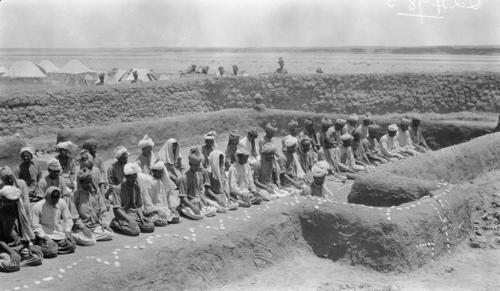I came across an interesting and rather inspiring story the other day about a soldier in Afghanistan. I’m all too aware, of course, that there are literally hundreds – possibly thousands – of these little personal tales coming out of conflict zones and some, I suppose, have grown in the telling to take on the status of battlefield myth. But I’ll press on, because this one is different.
Private Curtis Welsby’s friend Jamie was killed in Afghanistan a little over a year ago, just weeks before their battalion was to return to the UK. Pte Welsby was devastated. In his despair, however, he happened to notice that his pocket family bible was poking out from under his body armour. He went to push it back but, on the spur of the moment, decided instead to pull it out because, as he recalls ‘I needed something to make me feel good right then.’
The Book of Revelation
The bible fell open to the Book of Revelation and the words: ‘And God shall wipe away all tears from their eyes; and there shall be no more death, neither sorrow, nor crying, neither shall there be any more pain: for the former things are passed away.’ He read it over and over again and realised that the words were speaking to him directly:
“I thought, there’s nothing for Jamie to worry about now. It was exactly what I needed to read, because what happened was so totally devastating and unexpected.”
Five conflicts
What makes this more interesting than simply a tale of a person finding comfort in their faith when at their lowest ebb is the back-story to the bible itself. Because it turns out Pte Welsby’s little New Testament had seen five conflicts. His great-great grandfather was issued it in the First World War, his great-grandfather took it with him to the battlefields of WW2, after which it travelled to Korea with Pte Welsby’s grandfather before finally spending time in Northern Ireland with his uncle.
This got me thinking about the part played by faith in the war. On a superficial level it’s understandable, I suppose, to think of battle-zones as godless places where moral and spiritual values are suspended, but this is absolutely not the case.
Confessional words
There’s a brilliant exhibition – Enduring War: Grief, Grit and Humour – just opened at the British Library (one of our DCMS sponsored bodies) which sheds further light on this. There are photographs showing Sikhs singing religious chants outside their billets – Sikhs joined in great numbers, making up more than 20 per cent of the whole British Indian Army at the outbreak of the war – and a Christian church service in the field.
Pte Welsby’s bible was probably one of six million issued to soldiers in the war, while small prayer books that could easily fit in a pocket were published by several organisations, often including prayers for different times in the day and suggesting confessional words with which the wounded should prepare themselves for death.
Religious Faith
Religious faith often offers comfort to soldiers – whether it’s because their religion asks followers to protect and defend the weak, like Sikhism, or is based on the principles of loyalty and service as in Judaism. One of the British Library’s most poignant exhibits is a letter from Sher Muhammad Khan, recuperating at the Brighton Pavilion Hospital, in which describes the problems of keeping a copy of the Qur’an clean, an important element of religious faith in Islam, and saying the prescribed prayers when on active service at the Front.

I’ll give the last word to Private Welsby:
‘Arriving in Afghanistan was scary. When you leave Camp Bastion you realise that it’s really real. It’s you and your friends now. I kept my Bible with me in my pocket all the time and it calmed me down. I thought that God would be looking down over me. I had a sense of him being with me.
‘I would pull it out and read it when we went on patrol and I had a tingling feeling go through my body every time. Anything could happen. Nobody had a clue what would happen. But, when I picked up my Bible, I felt that nothing would happen to us. We got into firefights, but we always got out of them.
‘It means a lot to me. All of my family have read it. I wish I could know what they read. But me and my granddad were very close and we both liked exactly the same things. I reckon he had a hand in saying, “Stop at that page”. I reckon somehow he guided me to reading Revelation.’
Image: MINISTRY OF INFORMATION FIRST WORLD WAR OFFICIAL COLLECTION
Creator: Varges, Ariel
 Department for Culture, Media and Sport
Department for Culture, Media and Sport